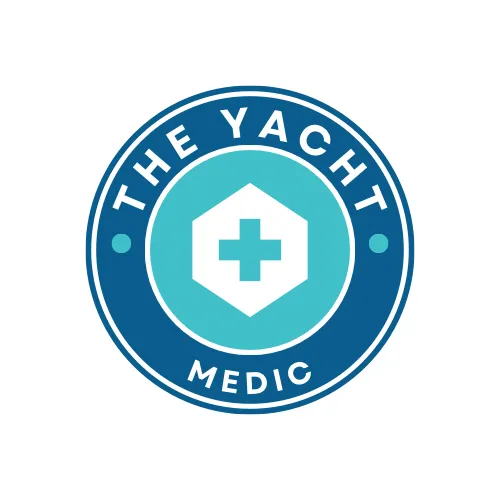See Our Latest Blogs
Beyond Boundaries, Beyond Rescue
Mastering Self Reliance At Sea

Psychological First Aid Mini Course
A superyacht can be a remote, extreme or harsh environment. Especially in a critical incident.
Psychological First Aid on Superyachts is an essential skill for every crew member to have.
So, here is a 2 minute a mini course, so, read on!
I’ll cover:
- Reflective Listening & Building
- Active Listening
- Rapid trust Building
- Assessment & Prioritization
- Tine Sensitive Support
- RED FLAGS to Watch For
- Calming Techniques
- Crisis Containment
Psychological first aid is a crucial tool, especially in environments where access to general healthcare is limited or non-existent.
Whether you're in a remote, harsh wilderness setting or aboard a superyacht far from the comfort and familiarity of home, the challenges of these environments can take a significant toll on mental health.
In remote and extreme environments, traditional healthcare services are often out of reach. The isolation, unpredictable weather, and demanding conditions can create a perfect storm for stress, anxiety, and trauma.
In these situations, psychological first aid becomes not just important, but essential. It equips individuals with the skills to provide immediate support, stabilize the situation, and prevent further psychological harm.
But it’s not just those in the wilderness or disaster zones who need to be prepared. Even a superyacht, often viewed as the pinnacle of luxury, can be a remote and extreme environment in its own right.
Crew members are often far from family, friends, and familiar surroundings, working long hours in isolated conditions. The pressures of maintaining high standards of service, coupled with the physical and emotional distance from loved ones, can make life on a superyacht as challenging as any other extreme environment.
In these scenarios, psychological first aid is crucial for maintaining mental well-being. It helps crew members support each other, manage stress, and cope with the unique challenges of their environment.
By understanding the signs of distress and knowing how to respond effectively, crew members can help prevent minor issues from escalating into serious mental health crises.
Ultimately, psychological first aid is about being prepared. It’s about recognizing that even in the most luxurious or seemingly controlled environments, the mental health of those around you is just as important as their physical well-being.
And when traditional support systems are far away, having the tools and knowledge to provide immediate psychological support can make all
This is a mini course, specifically tailored to the unique challenges faced on superyachts, giving you the tools to support your team through any crisis.
Reflective Listening & Building
On a superyacht, where space is tight and stress levels can run high, building strong, trusting relationships with your crew is essential. Reflective listening is a cornerstone of effective leadership—it helps you connect with your team, identify issues early, and create a culture of support.
How to Do It
Active Listening
Pay attention to tone, body language, and what’s not being said. For example, a crew member might say they’re “fine,” but their crossed arms and lack of eye contact suggest otherwise.
Echoing Emotions
Go beyond repeating words—reflect the underlying emotions. If a crew member says, “I’m just tired,” you might respond with, “It sounds like you’re feeling really drained, both physically and mentally.”
Rapid Trust-Building
Use small, consistent actions to build trust. This could be as simple as checking in regularly or remembering personal details they’ve shared. These gestures show that you genuinely care.
Advanced Practice Exercise
During a team meeting, intentionally practice reflective listening. Afterward, ask your team how they felt about the communication—this feedback loop will sharpen your skills and strengthen your leadership.
Assessment & Prioritization
When you’re responsible for the safety and well-being of your crew, quick and accurate assessment is crucial. This module teaches you how to triage emotional and psychological needs just as you would in a medical emergency.
How to Do It
Beyond the Surface
Look for subtle signs of stress that might be missed—like a usually punctual crew member starting to be late or someone becoming unusually quiet.
Prioritize
Develop a mental checklist to quickly assess who needs the most urgent support. Consider factors like the intensity of their distress, their role on board, and the potential impact on overall operations (review the ACCE model in my last post)
Time-Sensitive Support
In critical moments, act fast. A delay in offering support can escalate a manageable issue into a full-blown crisis. Always have a plan for who steps in when you’re not available.
Case Study Analysis
Review a real-life incident where swift assessment and prioritization were crucial. Discuss how the outcome could have been different with or without these skills.
Intervention & Disposition
After assessing a situation, the next step is to intervene effectively. This module covers advanced intervention techniques tailored for the high-stress, confined environment of a superyacht.
How to Do It
Tailored Calming Techniques
Recognize that different crew members respond to different calming strategies. For example, some might benefit from physical grounding techniques (like focusing on the feeling of the deck beneath their feet), while others might need a few minutes alone in a quiet space.
Crisis Containment
Know when to isolate the issue. If one crew member’s stress is affecting the entire team, it might be necessary to remove them from the situation temporarily—whether that’s a break in their cabin or stepping off duty for a few hours.
Disposition Decisions
Make the tough calls. Sometimes, allowing a crew member to continue working after a brief intervention is fine, but other times, you may need to arrange for professional support or even consider their temporary removal from the vessel. Always prioritize safety and long-term well-being over short-term convenience.
Scenario Walkthrough
Role-play a scenario where a crew member has a panic attack just before a critical operation. Practice the steps of intervention and make a decision about their disposition, considering the needs of both the individual and the team.
Unspoken warning Signs
Body Language & Recognizing Red Flags
Understanding the unspoken cues of your crew is essential in providing psychological first aid. This module will dive into reading body language, using NLP (neuro-linguistic programming) techniques, and recognizing when someone needs professional help.
How to Do It
Reading Body Language
Observe non-verbal cues like posture, eye contact, and gestures. For instance, crossed arms, hunched shoulders, or avoidance of eye contact can indicate discomfort, stress, or reluctance to engage.
NLP Techniques
Use Neuro-Linguistic Programming (NLP) to better understand and influence the psychological state of your crew. For example, mirroring the body language and speech patterns of someone in distress can help build rapport and ease tension.
Red Flags to Watch For
Sudden Behavioral Changes
A usually outgoing crew member suddenly becomes withdrawn, or someone known for their calm demeanor starts snapping at colleagues.
Physical Symptoms
Persistent headaches, digestive issues, irritable bowels, or unexplained fatigue may indicate underlying stress or psychological distress.
Talk of Hopelessness or Self-Harm
If a crew member expresses feelings of hopelessness, talks about self-harm, or mentions suicide, it’s crucial to refer them to a mental health professional immediately. Self harm includes drug and alcohol abuse.
Action Steps
If you notice any red flags, don’t hesitate to take action. This could mean offering additional support, adjusting their workload, or referring them to a professional. Your prompt response could make all the difference.
Self-Care
Leaders often focus so much on their team that they neglect their own well-being. This final module emphasizes the importance of self-care for sustaining effective leadership in high-pressure environments.
How to Do It
Mindfulness or Prayer
Learn quick mindfulness exercises that fit into your busy day. Even 60 seconds of deep, focused breathing or prayer can lower your stress levels and improve decision-making.
Boundaries with Technology
On a superyacht, the lines between work and personal life blur easily. Set firm boundaries with your devices—consider establishing “no-tech” times to decompress without distractions. Take time off social media.
Debriefing for Mental Health
Regularly debrief with your team after stressful events. Discuss not only what happened operationally but also how everyone is feeling. This practice can prevent burnout and build resilience.
If you would like to do the 4 hour psychological first aid course, message me & I’ll give it to you, for free.
Stay safe
Stay close
Stick together
Ps. I hope this helps someone today.
Sail Safely with Expert Medical Training
James - Professional Race Yacht Owner/Skipper

" The practical knowledge and psychological strategies we've learned have already paid off on our latest race. The Yacht Medic doesn't just teach you to respond to emergencies; they prepare you to prevent them. My crew is safer, and I'm more confident at the helm thanks to them."
Sophia - Registered Nurse (ICU) & Yacht Owner

" The depth of knowledge in marine medicine, coupled with real-world psychological first aid, has been exceptional. Not only do I feel prepared to tackle medical emergencies at sea, but I also have a newfound confidence in managing stress and leading with confidence in any challenging environment. "
Alex - Superyacht Captain

"I'm now equipped with deeper medical knowledge, from handling emergencies to ensuring the ongoing mental health of my guests and crew in high-stress situations. The modules on resilience and leadership have profoundly impacted my command style. The Yacht Medic has undeniably improved the safety and professionalism onboard."
Be Prepared, Stay Safe & Protect Your Crew
© The Yacht Medic - All Rights Reserved,
Photography & Media by Oli Riley Photography

info@the-yacht-medic.com
+34610120242
Palam de Mallorca, Spain
